Selecting the right collar for an aggressive dog is of utmost importance to ensure both the dog's safety and the safety of those around them. It is crucial to understand the differences between various types of collars and how each collar type can influence a dog's behavior.
In this article, we will delve into the importance of selecting the correct collar, discuss different collar options, and provide practical advice on choosing the best collar for your aggressive pet.
Why the Proper Dog Collar is Crucial:
A properly chosen collar can aid in managing and modifying the behavior of an aggressive dog. It provides control, and communication aids, and ensures safety during training sessions and daily walks.
The right collar can prevent escapes, discourage pulling, and maintain the handler's control over the dog in challenging situations.
Different Types of Collars:
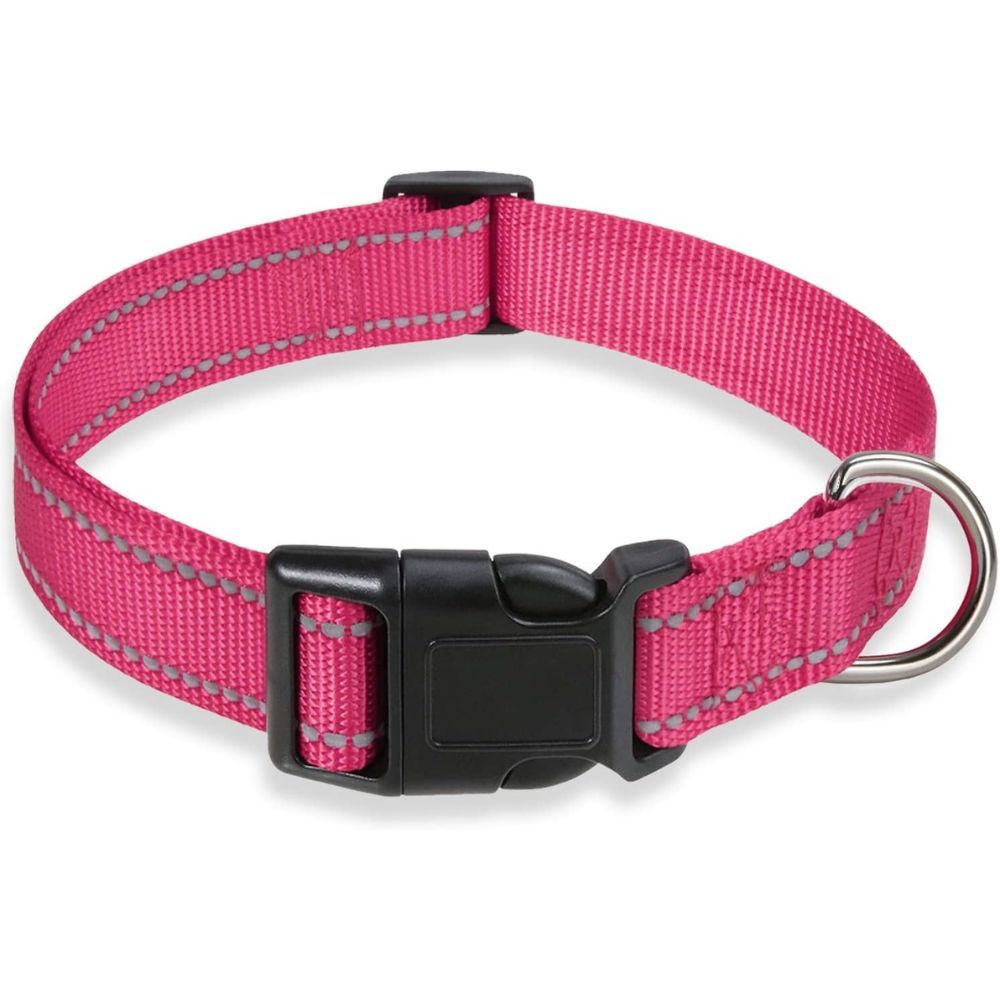
Flat Collars:
These traditional collars are made of nylon or leather and are suitable for dogs displaying mild aggression. They provide a basic level of control and can be paired with a short leash. However, for more aggressive dogs, they may not offer sufficient control.
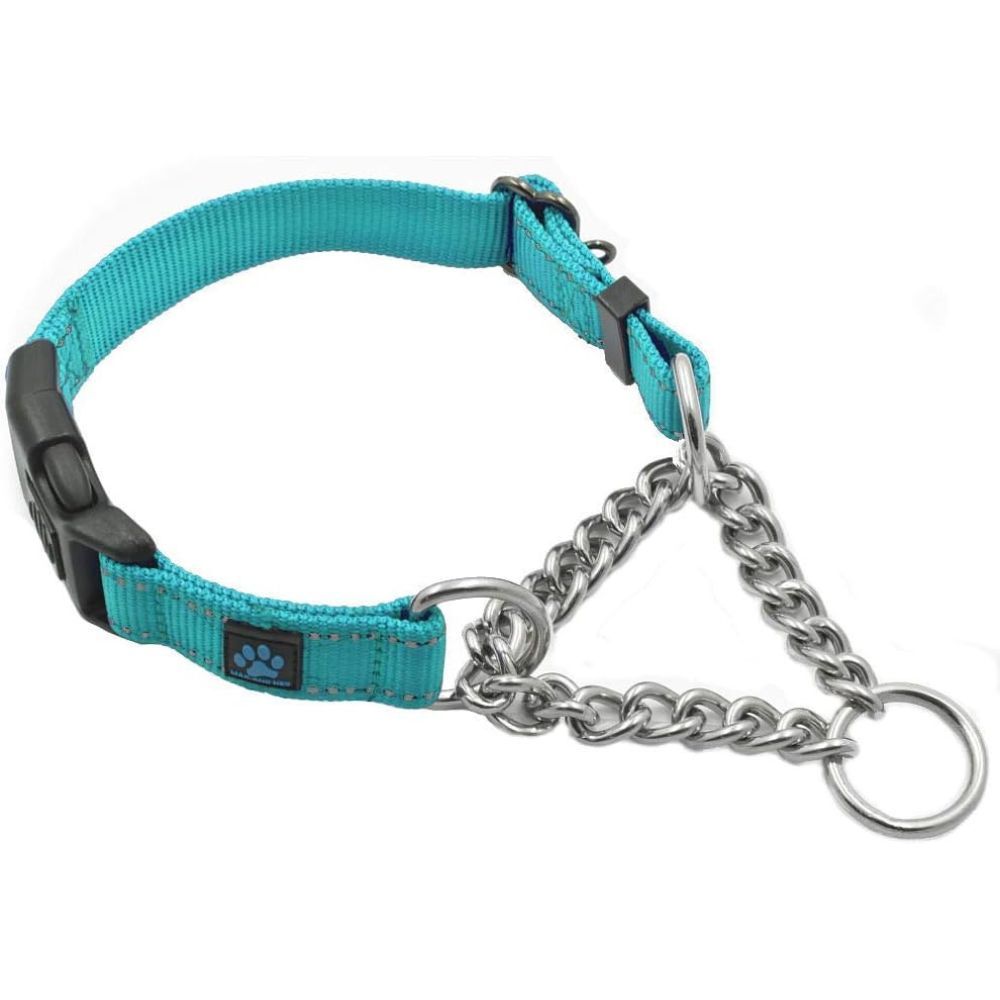
Martingale Collars:
Also known as limited-slip collars, martingale collars are designed for dogs prone to slipping out of their collars. They tighten slightly when the dog pulls, preventing escape without choking the dog. Martingale collars are effective for medium-sized to large aggressive dogs that have slim necks or strong pulling tendencies.
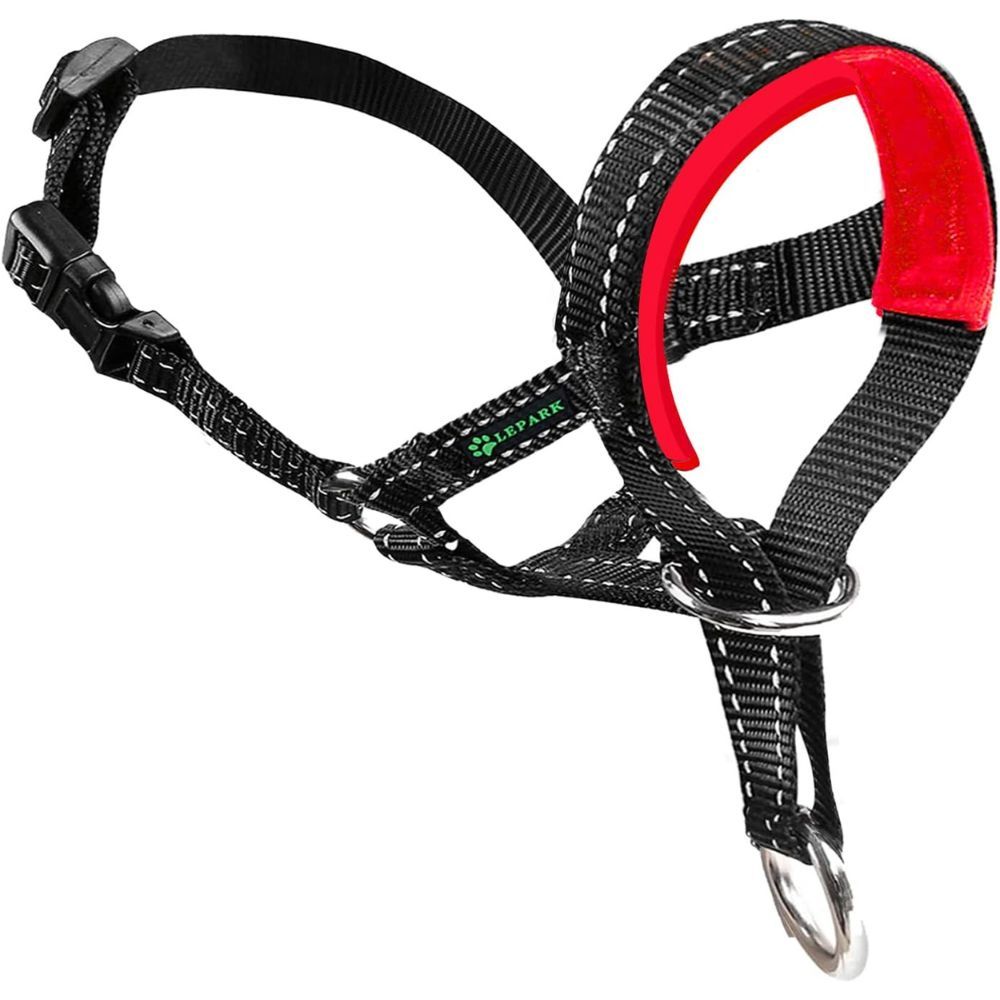
Head Halters:
Head halters, such as the Gentle Leader or Halti, are designed to control a dog's head movements. These collars gently redirect the dog's attention and discourage pulling without causing discomfort. Head halters are particularly useful for dogs with high prey drive or those with significant strength imbalances between the handler and the dog.
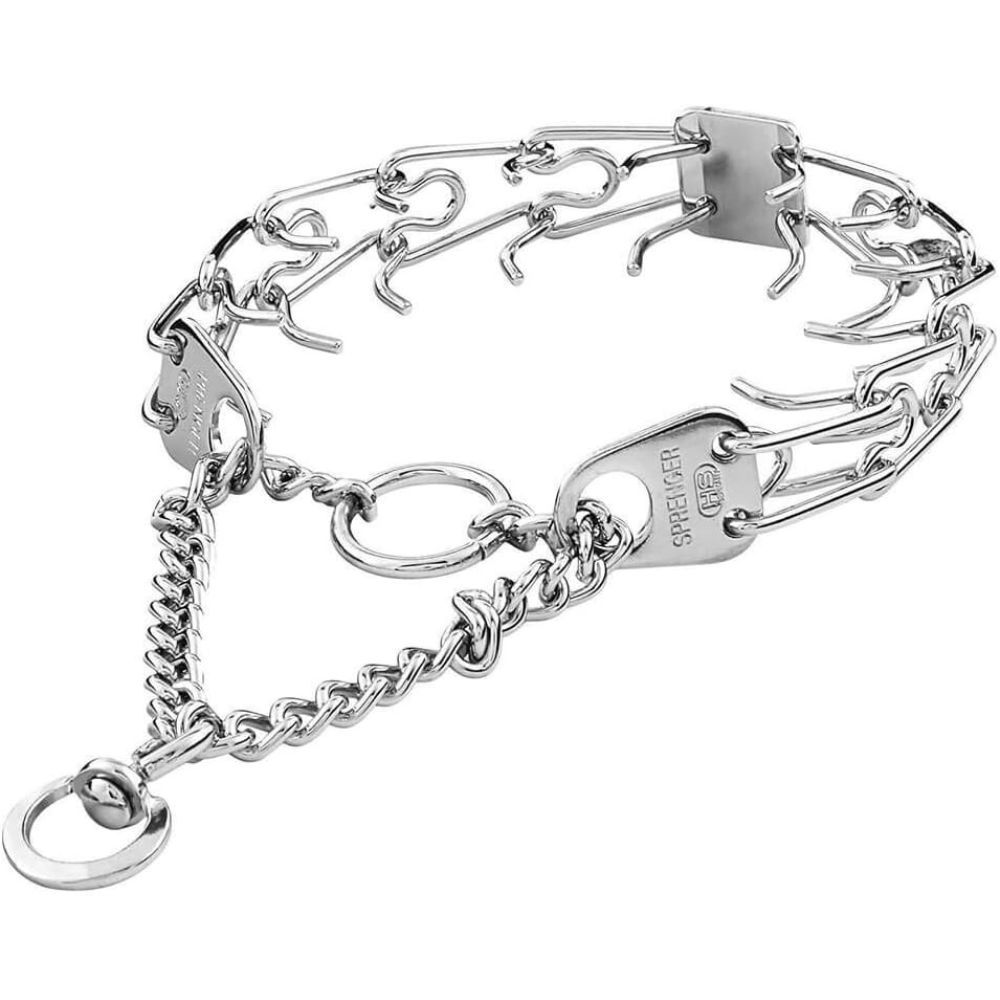
Prong Collar:
Prong collars, often misunderstood, are designed to distribute pressure evenly around a dog's neck when used correctly. They can be effective for large, powerful dogs with a tendency to pull aggressively. However, prong collars should only be used under the guidance of an experienced professional trainer to ensure correct usage and prevent injury.
Selecting the Right Collar Based on The Dog's Neck And Other Physical Attributes:
When choosing a collar for your aggressive dog, consider their physical attributes, including size, weight, and breed. Here are some examples:
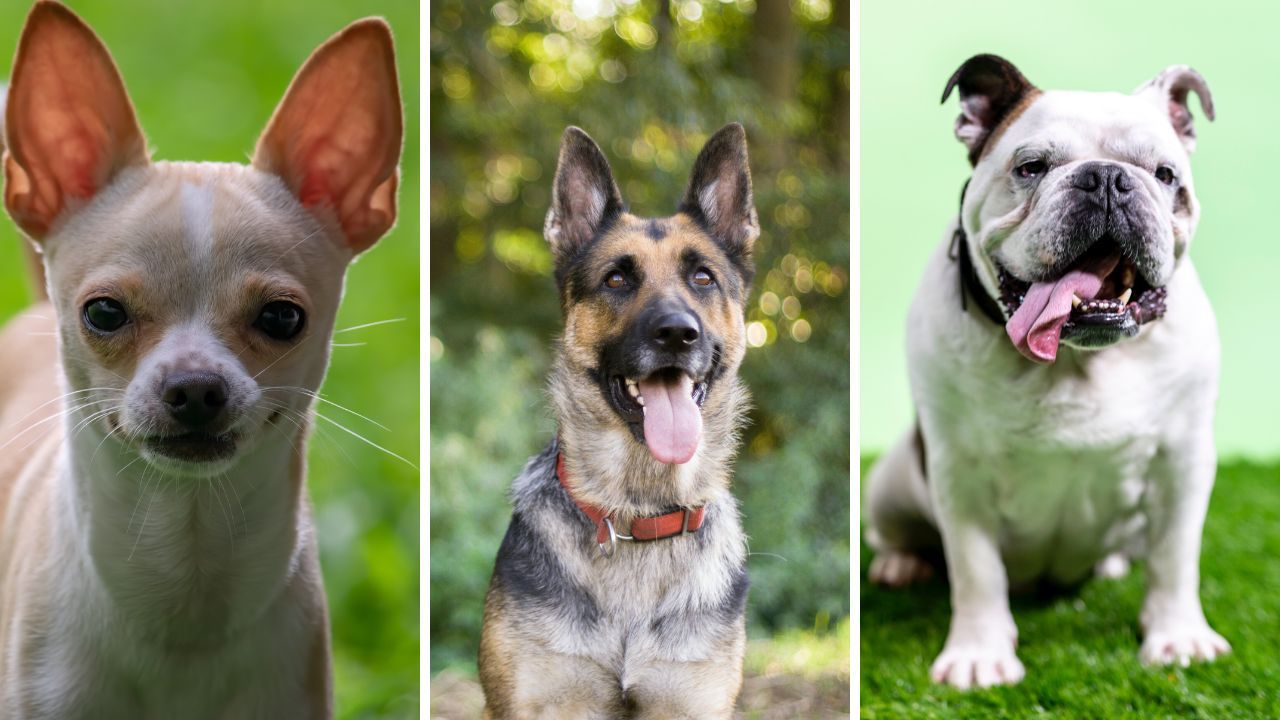
- Small Breeds: For small aggressive breeds, a martingale collar or a properly fitted flat collar may be suitable. Avoid using prong collars on small dogs as they can cause injury.
- Large Breeds: Large aggressive breeds with significant strength may benefit from a head halter or a prong collar, provided they are appropriately trained and supervised during use.
- Brachycephalic Breeds: Brachycephalic breeds, such as Bulldogs or Pugs, have unique anatomical features that require special consideration. Harnesses or front-clip harnesses can be more suitable for controlling these breeds without putting excessive pressure on their respiratory systems.
Practical Advice on Choosing the Correct Collar:
Consult a Professional:
It is crucial to consult with a professional dog trainer or behaviorist who can assess your dog's aggression and recommend the most appropriate collar type for their specific needs.
Proper Fit:
Ensure that the collar fits snugly but not too tightly around your dog's neck. A loose collar may slip off, while a tight collar can cause discomfort or injury.
Training Approach:
No collar is a substitute for proper training. Use the collar as a training tool in conjunction with positive reinforcement techniques. Seek professional guidance to implement an effective training plan.

Some Final Thoughts
Selecting the right collar for an aggressive dog is a crucial step towards managing their behavior and ensuring their safety.
By considering your dog's physical attributes, consulting with professionals, and using the collar as a training aid, you can make an informed decision and provide the best support for your aggressive pet.
Remember, each dog is unique, so tailor your approach accordingly to meet their specific needs.
FAQ's
1. What type of collar is recommended for aggressive dogs?
The best type of collar for aggressive dogs is typically a martingale or a head halter. These collars offer better control without causing harm or discomfort to the dog.
2. Are prong or choke collars suitable for aggressive dogs?
While prong or choke collars might offer control, they can escalate aggression or cause harm. It's advisable to avoid using such collars, especially for aggressive dogs, as they can lead to negative behavioral consequences.
3. Can a harness be effective for aggressive dogs?
Harnesses can be useful for controlling pulling and distributing force more evenly, but for a highly aggressive dog, they might not provide sufficient control or discourage aggressive behavior.
4. How does a martingale collar work for aggressive dogs?
A martingale collar tightens slightly when a dog pulls, providing better control without choking. This can help manage an aggressive dog without causing harm.
5. Are head halters suitable for all aggressive dogs?
Head halters can be effective but might not be suitable for every aggressive dog. Some dogs may resist or become more agitated with a head halter, so proper training and gradual introduction are crucial.
6. Should I consult a professional before selecting a collar for my aggressive dog?
Yes, consulting a professional dog trainer or behaviorist is highly recommended. They can assess your dog's behavior and recommend the most suitable collar based on the individual dog's needs.
7. Are there specific materials or features to look for in a collar for aggressive dogs?
Look for durable materials like nylon or leather, reinforced stitching, and secure buckles. Avoid collars with excessive adornments or parts that could break easily during use.
8. How can I train my aggressive dog to accept a collar?
Training an aggressive dog to accept a collar involves desensitization and positive reinforcement. Gradually introduce the collar, associate it with positive experiences, and reward the dog for calm behavior.
9. Is it important to properly fit the collar on an aggressive dog?
Absolutely. A properly fitted collar is crucial for safety and control. Ensure it's snug enough to prevent slipping off but not too tight to cause discomfort or choking.
10. Can a specialized collar alone resolve aggression in dogs?
While a suitable collar is a tool for control, resolving aggression often requires comprehensive behavior modification, training, and potentially, the assistance of a professional behaviorist. The collar complements the training but is not a standalone solution for aggression.

Conclusion
What collar is best for aggressive dogs you ask?
Aggressive dogs can be a handful for the average dog owner or even the most experienced pet owners.
When it comes to finding the right collar for your canine companion, it's important to do your research and choose one that will effectively address their behavioral issues. One option for particularly stubborn or dominant dogs is the dominant dog collar.
These collars are specifically designed to give the handler more control over their animal's movements, making it easier to steer them away from potential confrontations with other dogs.
However, it's important to note that while dominant dog collars and similar tools like pinch collars, shock collars, or an e collar, can be effective in a training context, they should always be used with the utmost care and caution.
Ultimately, the best collar for an aggressive dog will depend on several factors, including the dogs neck size, sensitivity, and level of aggression toward other dogs.
Is your dog aggressive? Be sure to consult with a qualified dog trainer or behaviorist before moving forward with any particular training collar.
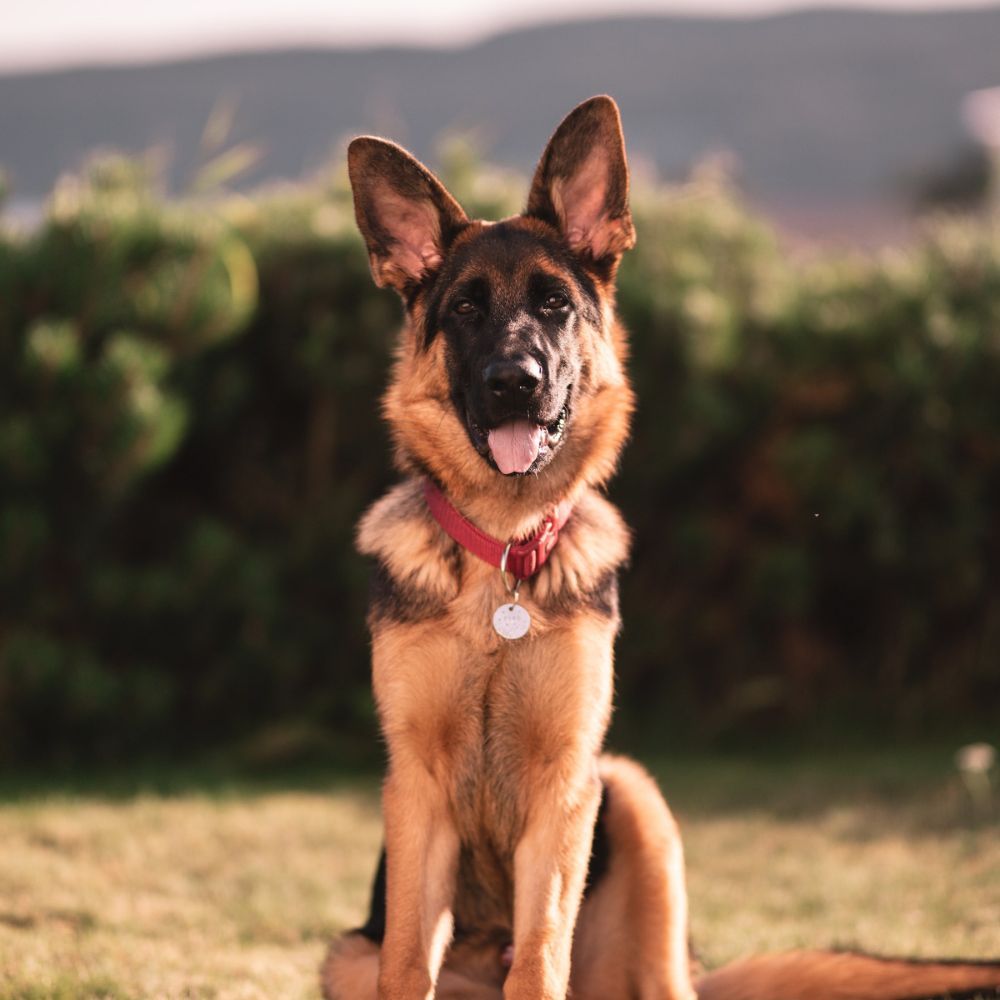











Member discussion